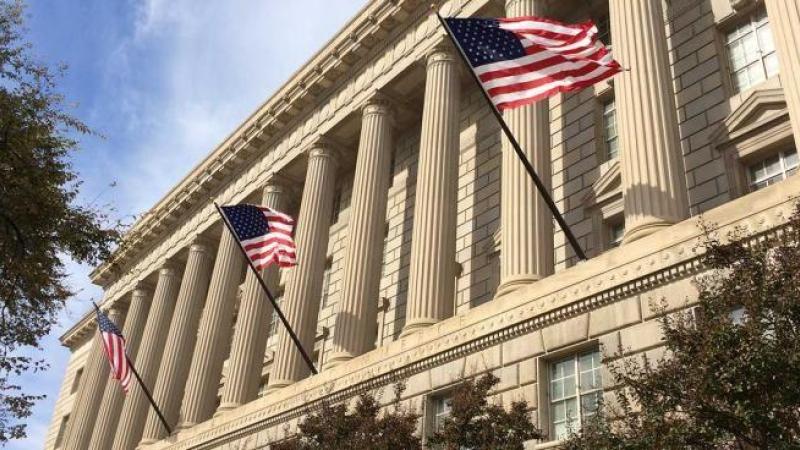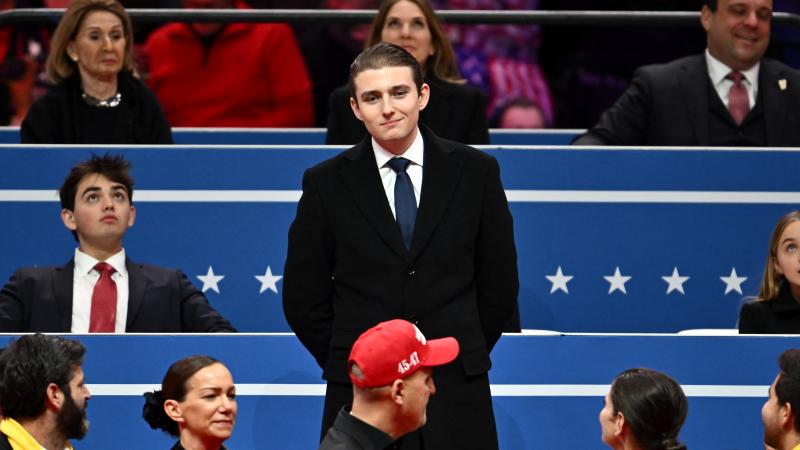Major corporations scramble to support Black Lives Matter as protests continue
Free delivery from black-owned restaurants, major donations to activist groups
As protests and demonstrations against racism and police brutality drag on for another week across America, numerous corporations are scrambling to capitalize on the moment by donating to various Black Lives Matter organizations and allied causes, winning praise and sometimes sharp criticism for P.R. efforts that are by turns successfully deft and sometimes unfortunately clumsy.
The practice of corporate-sponsored social justice messaging is not new. The modern tactic of fusing activism with capitalist enterprise was perhaps embodied most famously in 1971's "Buy the World a Coke" advertisement, which utilized the contemporary hippy movement and the ongoing postwar counterculture to sell sodas.
Nearly 50 years later, Pepsi would famously try to pull off a similar campaign, depicting reality television star Kendall Jenner apparently solving the problem of police brutality with a can of Pepsi. Widespread backlash to that advertisement demonstrated the limits of corporate activism, which must balance the marketability of its product with the integrity of the movement it's trying to co-opt.
Corporations today appear to be keenly aware of the marketing benefits to striking that balance, which is likely why so many of them are hastily jumping on board with the current Black Lives Matter craze — some with success, others with more difficulty.
Free delivery for black businesses, big donations
Uber Eats, the food delivery app of the rideshare company Uber, announced this week that black-owned businesses would have free delivery privileges on its system. Uber is suspending delivery fees for black-owned restaurants through the end of the year, the company said in a statement, and will also offer discounted rides to those who own and work at black-owned small businesses.
Uber's announcement was perfectly timed for both the political climate and the economic one: Most restaurants have been surviving on takeout alone over the last few months of coronavirus lockdowns, and owners are still depending heavily on takeaway business as reopenings progress slowly across the country.
Other companies have pledged substantial monetary donations for progressive and racially conscious causes. YouTube this week announced a $1 million donation "to address social injustice." The company was not clear to what causes exactly it would be donating that money, the sum of which accounts for about 0.006% of the company's yearly revenue of $15 billion.
The clothing company Spanx, meanwhile — known for its undergarments that men and women wear to appear thinner — said in an Instagram post this week that it would be donating "$100,000 across national organizations focused on combating racial injustice: Black Lives Matter, NAACP Legal Defense and Education Fund and The Minnesota Freedom Fund."
"To be an ally is to speak out against injustice and to be ears to listen to the POC experience," the company said, "To be an ally to us means having a heart for empathy for the oppressed and a hand to make change."
It is not immediately evident what it means exactly to donate to "Black Lives Matter," a mostly loosely organized movement of disassociated activists and protesters across the country and the world. The campaign's nominal central authority does accept donations, though it is not evident how those funds are dispensed. The companies Ganni, Anastasia Beverly Hills, Pretty Little Thing and others all pledged to donate to Black Lives Matter, among other causes.
'Your employees are dying from poverty'
Some corporations have, at least initially, held back from promising major financial commitments to social justice causes. Amazon, for instance, posted on its Twitter feed at the end of last month: "The inequitable and brutal treatment of Black people in our country must stop. Together we stand in solidarity with the Black community — our employees, customers and partners — in the fight against systemic racism and injustice."
Those remarks, which were made without any accompanying pledge to any relevant organizations, generated immense blowback on Twitter, with users slamming the company for its purported ungenerous labor policies. "Your employees are dying from poverty," one wrote. "Pay your workers and donate money," said another. "Open your purse," said a third, using a slogan that has become popular among activists in recent days.
Perhaps sensing an impending P.R. catastrophe, Amazon a few days later posted on Instagram that it "stands in solidarity with the Black community" and remains "steadfast in our support for our employees, customers, partners, and the communities where they live and work." In that announcement it pledged $10 million to the NAACP, the Thurgood Marshall College Fund, the National Urban League and other black-centric organizations.
Netflix followed a similar trajectory over the past few days. On May 30 on Twitter it posted a missive that read: "To be silent is to be complicit. Black lives matter. We have a platform, and we have a duty to our Black members, employees, creators and talent to speak up." On June 2, company CEO Reed Hastings announced that the streaming corporation would be donating $1 million to the Center for Policing Equity, a law enforcement reform group.
Backlash even with good gestures
Tech and fashion companies are not the only ones that have signaled an intent to join in on the movement. The fast food chain Taco Bell, for instance — though it has not announced any donations as of yet — wrote on Instagram this week that it would be "muting [its] channels for the rest of the week and taking this time to reflect, learn, and listen."
On Twitter, meanwhile, McDonald's posted a short video in which it revealed that it was donating an undisclosed amount to the NAACP and the National Urban League. "We do not tolerate inequity, injustice, or racism," the corporation wrote.
Yet in spite of those outwardly good intentions, the company still faced criticism underneath that post for its low starting wage and its alleged anti-union practices. Notably, the ACLU posted in a reply that the company "[hasn't] even responded to our letter demanding paid sick and family leave for all employees, the majority of whom are Black or non-Black people of color."
"YOU are perpetuating racism and oppression by failing to protect the health of your workers," the civil rights organization wrote.
That kind of backlash is not rare. Uber faced criticism after its own announcements, as well, with users complaining about surge pricing and lawbreaking among Uber drivers. "This is joke of the day, right [Uber]? Clean up your own filthy backyard first before looking at others'," wrote one respondent.
Some Twitter users reacting to Nike's anti-racist post, meanwhile, were similarly critical. "If Nike actually was pushing for real change they would support bills for legislation to help end this systematic racism; not just put up ads," one wrote. "My head is about to explode from the irony of the fact that Nike uses literal slave labor," another user accused.
Yet overall, companies appear to be banking on the idea that saying anything is better than saying nothing. In a world where reactions and responses to public events are expected to be nearly instantaneous, many corporations have likely decided that they cannot afford to remain silent.
The $10 million donations and stirring videos and slogans may not last forever if the protests continue for too long, but for now many iconic companies are betting they are the shrewd marketing choice, particularly after months of lockdowns have left retailers struggling for business and hoping to jump-start revenue as the country starts to reopen.
















